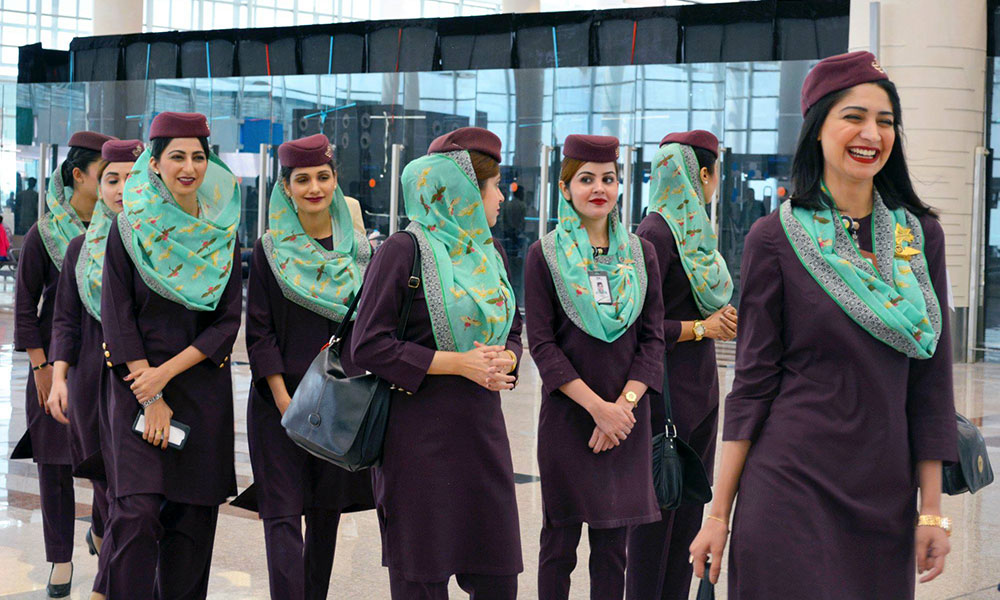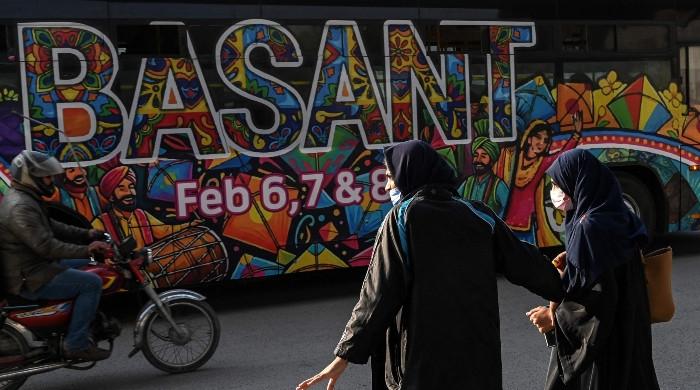Right to be fat?
Can PIA demote or dismiss employees for being overweight?
January 27, 2019

In 2013, a New Jersey judge adjudicated on a weight discrimination claim by a group of 22 cocktail waitresses, known as the "Borgata Babes", working in an Atlantic City Casino. The servers had sued their employer, Borgata Hotel and Casino, for subjecting them to penalties and disciplinary proceedings if they gained more than 7 per cent of their body weight, claiming that such actions were akin to weight discrimination, based on appearance.
Judge Nelson Johnson dismissed the lawsuit, focusing on the contracts that the women signed, which required them to be "sex objects" to the casino’s patrons and maintain a certain weight and appearance. Tellingly the judge held the following:
"For the individual labelled a babe to become a sex object requires that person's participation. Plaintiffs cannot shed the label ‘babe’; they embraced it when they went to work for Borgata."
In other words, the judge reasoned that the employment itself (being a waitress in a casino) required a standard of appearance and objectification which the women willingly agreed to submit to when they signed on the dotted line.
One might think that this ruling is deeply problematic, yet it would be surprising to hear that 49 out of 50 states in the USA may terminate a person’s employment for packing on a few extra pounds. This is because of the time-honoured principle of Freedom of Contract, which is the bedrock of any capitalistic enterprise. Any employment is voluntary and can be terminated at any time.
Interestingly, most legal systems prohibit termination of employment on the basis of race, colour, age, gender or religion. Punitively sanctioning someone because of their weight, however, is still fair game. The evidence that weight discrimination does exist is real though.
A 2014 study from Vanderbilt University, in Nashville Tennessee, found that overweight women are paid less than their male colleagues in a variety of industries. In another 2008 research conducted by Yale University, found that 10 per cent of women and 5 per cent of men had experienced discrimination based on their weight. Yet, Michigan is the only state in the US which explicitly passed a law in 1976 that prohibits discrimination on the basis of age and height.
Which brings the issue closer to home. In any social discourse in Pakistan, most people are not gun shy in commenting on someone’s weight. The language used is rather striking and I speak from personal experience. If you've put on weight you are labelled as "healthy" which is a weird euphemism for being fat. If you've slimmed down you're referred to as "smart". Rather unhelpful as the words literally mean the opposite of what they are intended to.
Useless semantics aside, a circular issued by the Pakistan International Airlines (PIA) to its cabin crew may very well give fat shaming a legal dimension. Evidently, PIA previously set a benchmark of an ideal weight for its crew, with a maximum allowance of 30 pounds above that weight, depending upon the individual’s BMI and height. PIA has now waived that allowance and that any crew weighing more than the 30 pounds over the benchmark, after January 31, 2019, shall be grounded and referred for medical evaluation and treatment, until the weight is reduced to the standard desired by the airline.
The circular has understandably not gone well with the cabin crew who have threatened legal action against what they perceive as weight discrimination.
Does the crew have a case?
A bit of a nuance needs to be considered here. PIA, unlike a private entity is constitutionally regarded as a public body which is performing functions in connection with the affairs of the state. Unlike a private airline, it is in the control of and provides services in connection with the state. Any policy or action by a public body which potentially contravenes fundamental rights guaranteed under the constitution may be challenged before a high court of a province through a writ petition.
Fundamental rights include, a right to life, a right of business and trade and a right to be treated in accordance with law. Article 25, of the constitution stipulates that it is a citizen’s inalienable right to be treated equally with others and not to be discriminated against
Can PIA’s circular against ostensibly overweight cabin crew members be considered discriminatory?
Actually, PIA is not the first nor the last airline that has been accused of weight and body-shape discrimination. Malaysia, Russia and India’s major airlines have terminated or suspended crew for not conforming to weight limits stipulated by them.
Air India, India’s national carrier, pursued a policy not dissimilar to PIA’s circular where it fired three flight attendants for being overweight. The flight attendants (along with various other staff employed by the Airline) challenged the decision before the Delhi High Court which reinstated the air hostesses. The high court held that whilst in many professions, such as the military, police or even firefighting services, physical standards such as height and weight may be necessary, but equally, a slim build may not be required in most careers including physically challenging ones such as boxing, wrestling or cricket (if you thought of Inzamam-ul Haq, you weren’t the only one).
As long as the air hostesses were doing their job efficiently, their weight was not a factor to be considered.
The Delhi judgment may could have persuasive effect for any claim initiated against PIA by its cabin crew. Which brings us back to the question of discrimination. How did PIA decide initially that its crew can be a 30 pounds above their body weight? On what basis is this criterion applicable to everyone, considering everyone’s bodies are different? What is the subsequent logic in reducing this criterion down to five pounds a month? Significantly, did the PIA demonstrate a causal link between excess weight and performance of duties and has this been backed by medical evidence? Thus far, no reasoning has been provided, except for some vague sound bites that the Airline wishes to improve performance.
From a sociological perspective, industrial guidelines which focus on appearance, from aviation, to multinationals and the media invariably involve or target women. Employers conveniently or deliberately fail to comprehend that a flight attendant, receptionist or a newscaster is not supposed to be a pretty face. Even models, appearing in beauty contests have to exhibit intelligence and a certain level of critical thinking. A focus on appearance is deeply unhelpful because it repudiates the criteria of proficiency or lack thereof at a particular craft.
Our own jurisprudence hasn’t really delved much into the question of weight discrimination as being contrary to a fundamental right. The Lahore High Court did adjudicate on a matter reported as Muhammad Ajlal Khan vs the Civil Services Academy [2007 PLC (C.S) 912] where a person appeared in a Civil Service Exam in 2004 and was declared obese/overweight and thus unfit to join the service, and subsequently sued the Civil Service Academy for discrimination. One rather jocular part of the Judgment are the submissions made by the Academy which was exasperated by the attitude of the Petitioner. When asked to reduce weight for the subsequent medical check-up, the Petitioner gained a further 5kgs. If this is not pure, unadulterated defiance, I’m not sure what is.
The High Court asked the question whether the Petitioner’s weight was likely to interfere with the performance of his duty? When no medical evidence was provided to the contrary the High Court ruled in favour of the Petitioner.
Are we ready to initiate a debate that fat shaming can be deeply unhelpful and mentally unsettling? Instead of formulating policies, are employers incentivising their employees through gym memberships or healthier eating options? If not, it makes little sense to use weight and appearance as an excuse to cull employments. It is deeply insidious if the move is designed to replace, otherwise efficient workers with slimmer and attractive alternatives.
We are already blighted with our pre-conceived notions of beauty, fair complexion and other prejudices that are petty, ridiculous and irrelevant. Discriminating on the basis of weight should not be another hill to die on.
Ali is a barrister in Lahore. He tweets at @RezaAli1980
Disclaimer: The opinions expressed in this article are those of the author and do not necessarily reflect the official policy or position of Geo News or the Jang Group.











